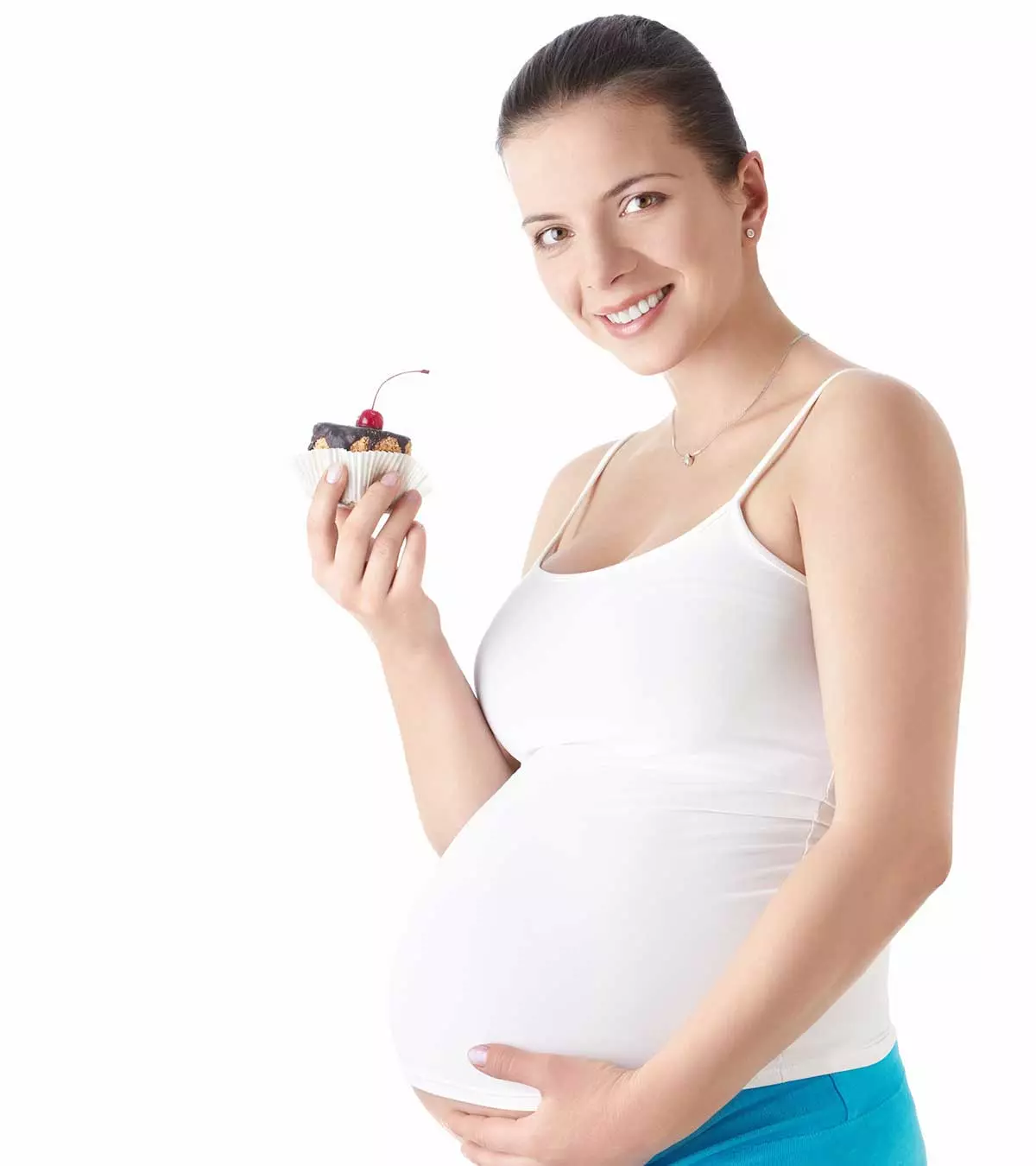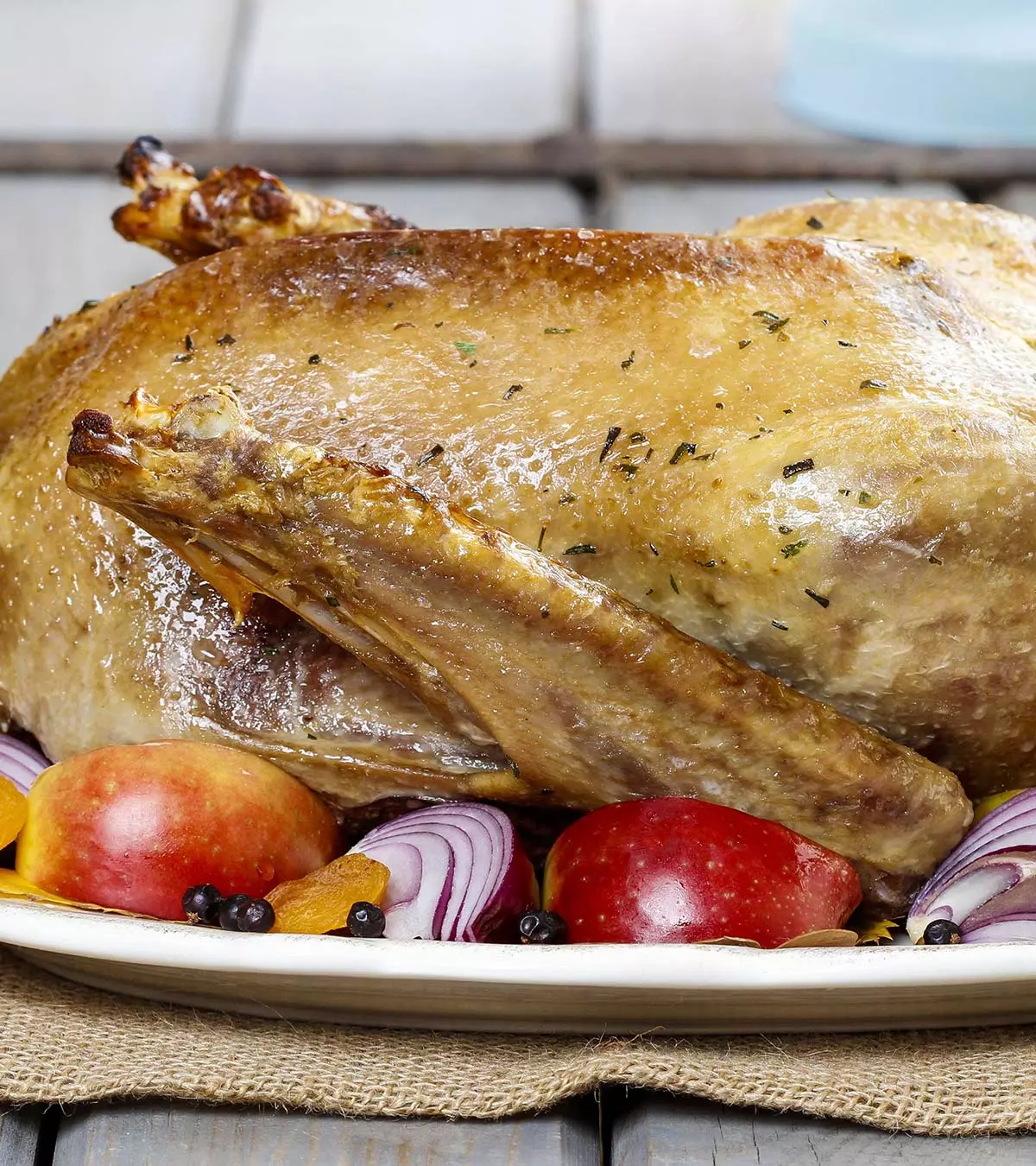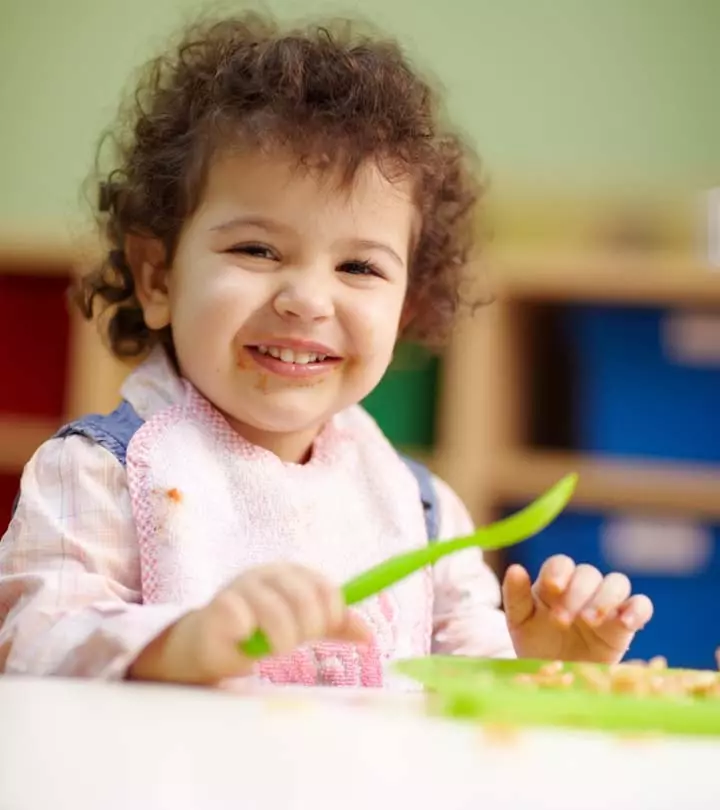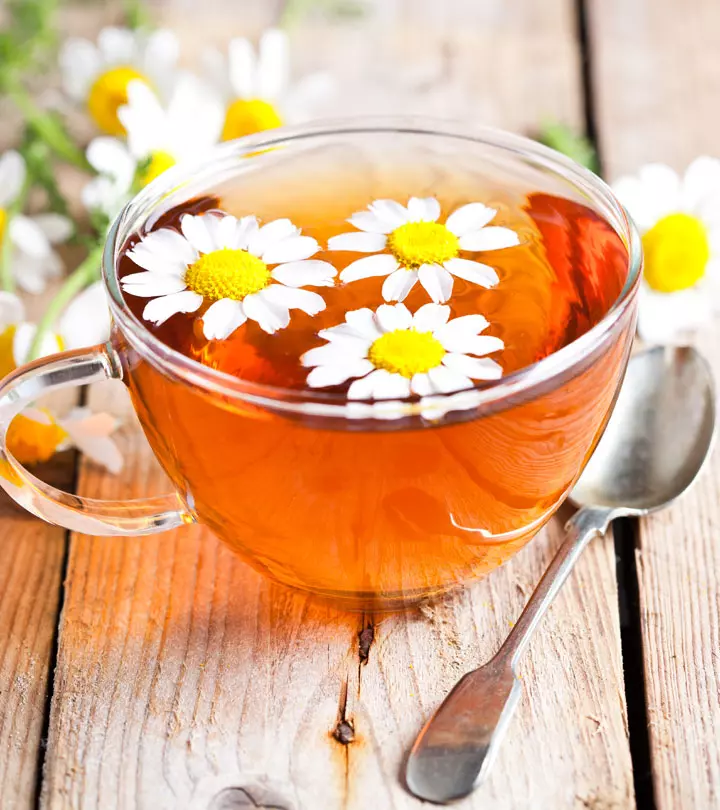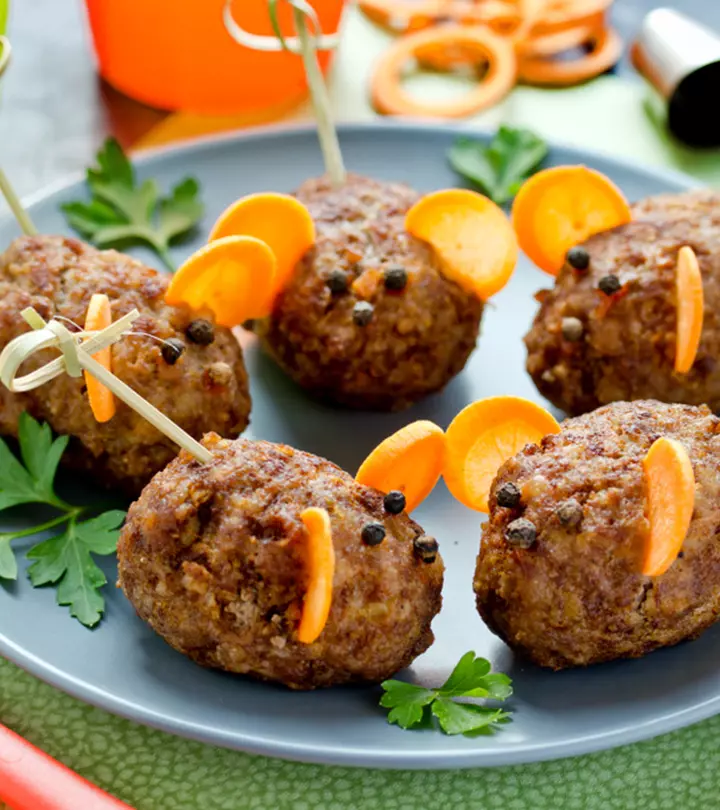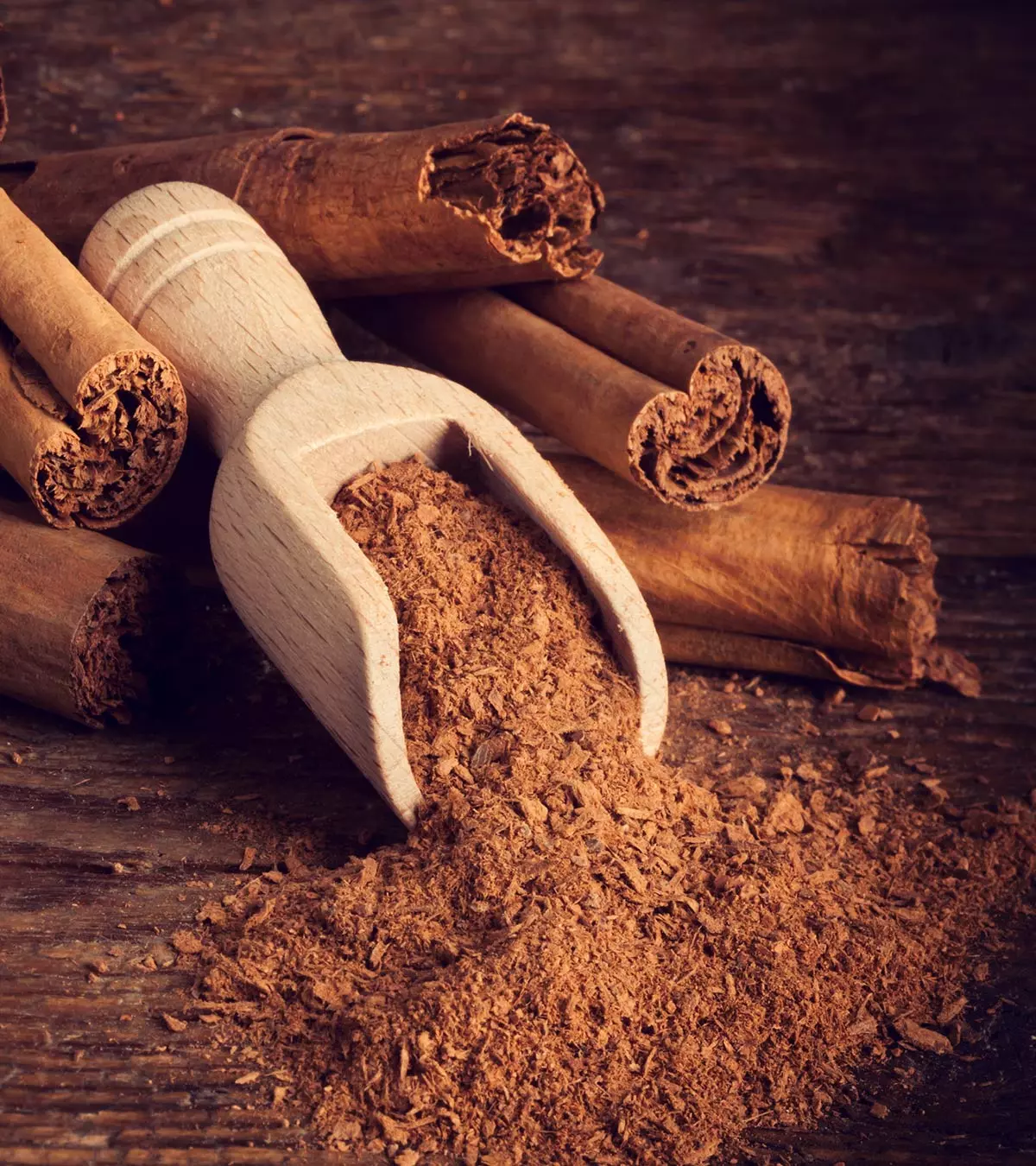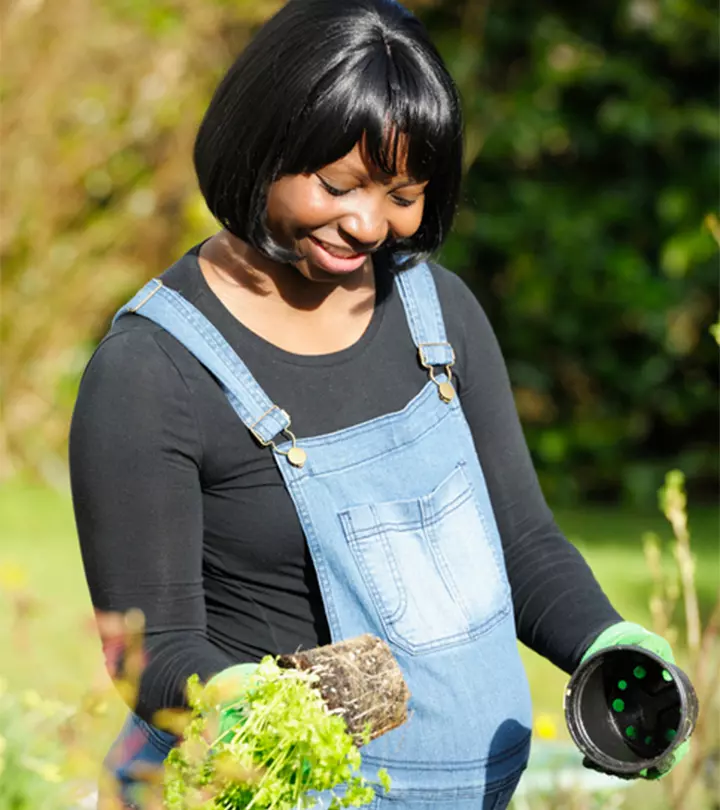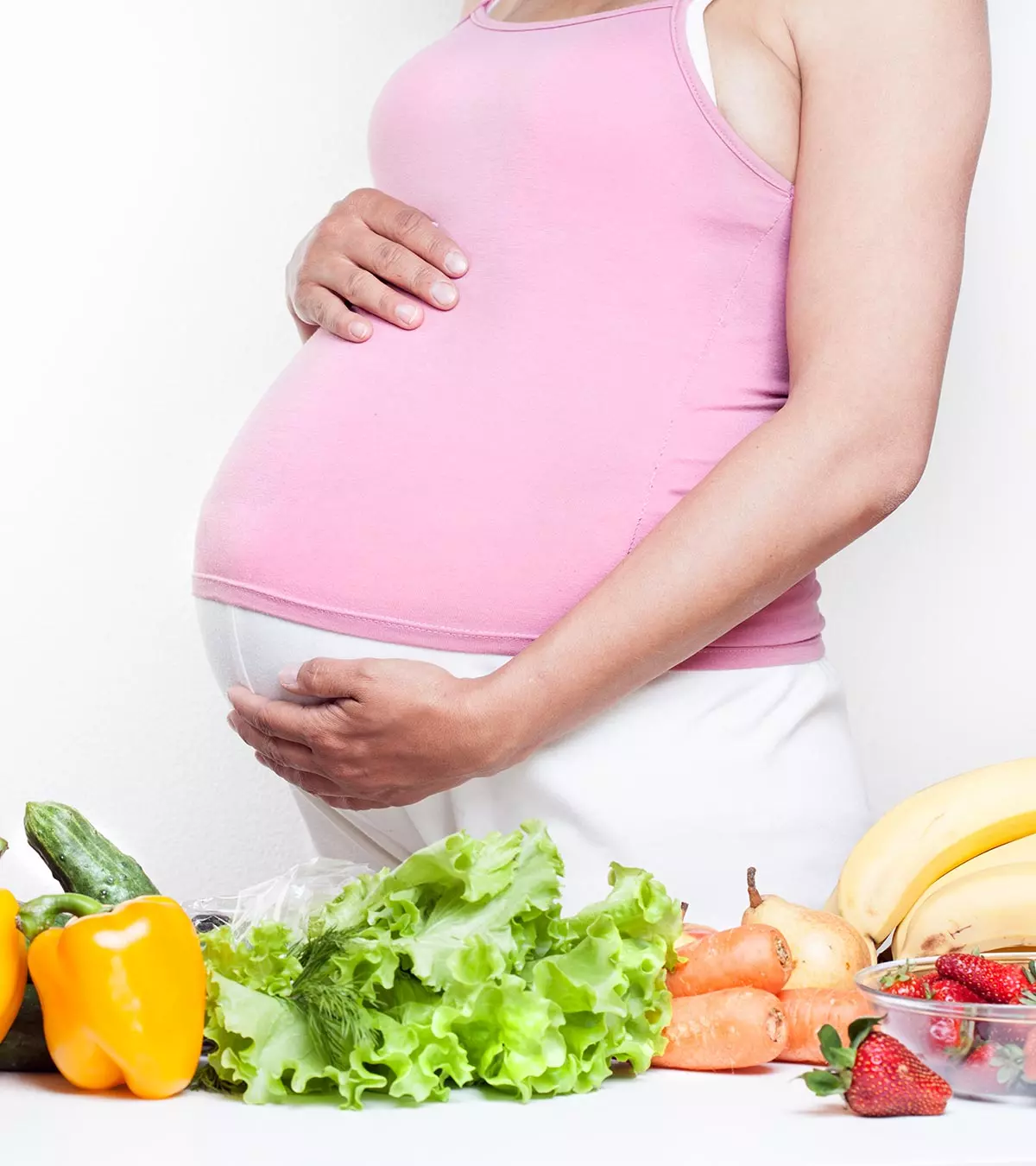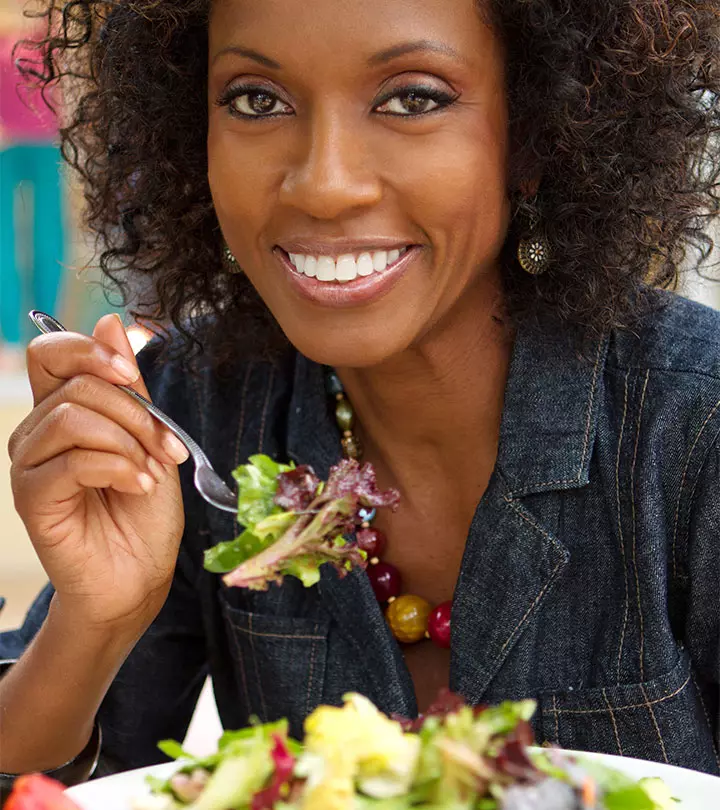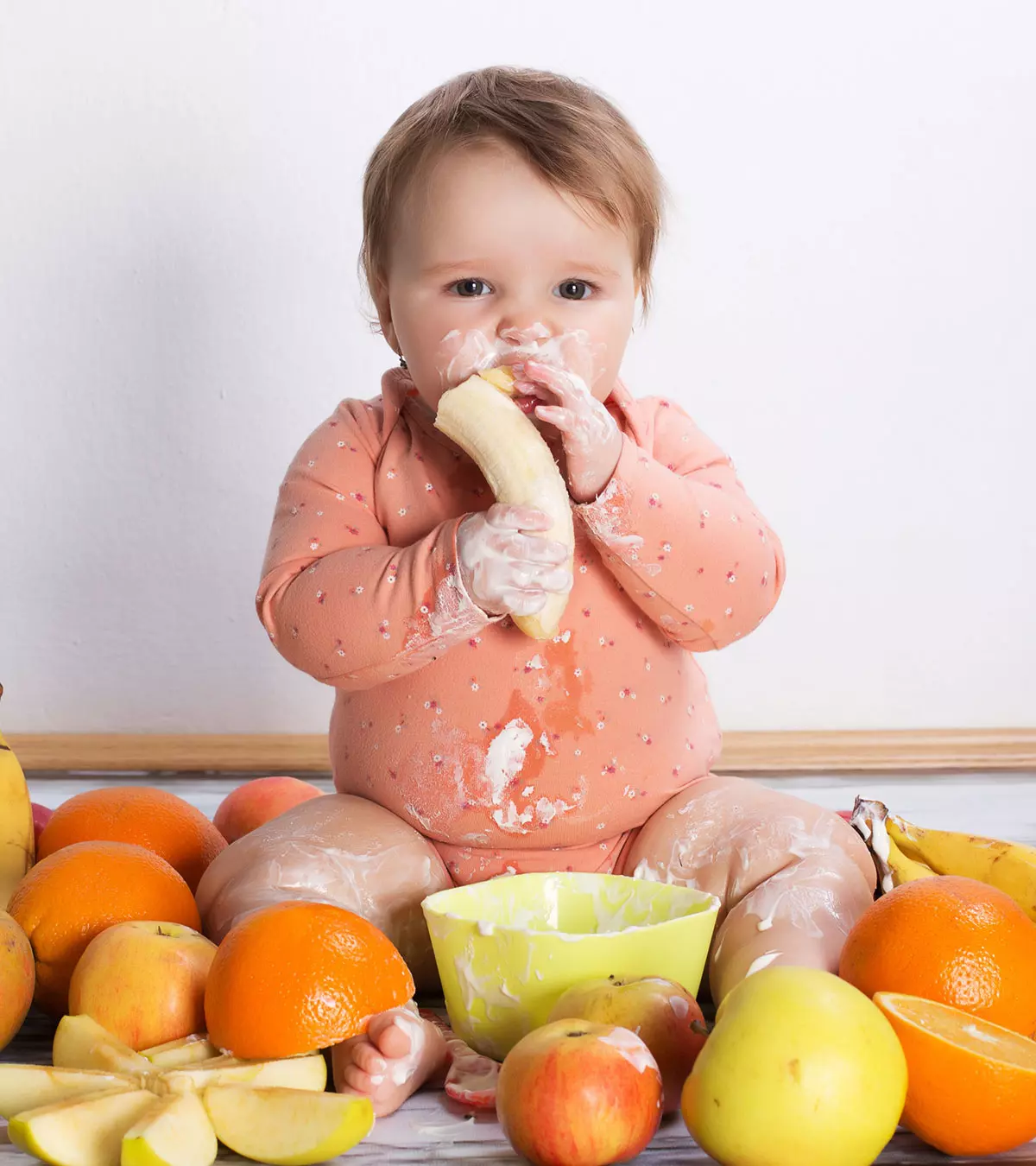
Image: Shutterstock
Drinking tea during pregnancy is safe, and it is not harmful to the baby. Most people love to sip a cup of tea every day in the morning or evening, and there is no risk of drinking a cup of tea every day. Some women may prefer to have a cup of tea when they want to feel refreshed. However, it is better to consume low caffeine-containing tea or pregnancy-safe herbal teas. Some herbal teas may refresh you while also providing health benefits.
Read on to know more about the safety of drinking tea during pregnancy and how much tea you should drink to avoid side effects.
Key Pointers
- Drinking moderate amounts of tea during pregnancy is safe as excess caffeine intake can affect you and the developing fetus.
- Usually, one cup of black/white contains 40 to 50mg of caffeine, whereas herbal teas contain trace amounts.
- Hence, you can consume herbal teas, such as chamomile tea and ginger tea during pregnancy, after consulting a doctor.
- Consuming herbal tea could help you stay hydrated, lower stress, and supply antioxidants.
Is It Safe To Drink Tea During Pregnancy?

Yes, it is safe to consume a moderate amount of tea when you are pregnant. Tea leaves contain polyphenolsiA group of chemical substances in plants, such as phenolic acids, flavonoids, and lignane, that act as antioxidants. and antioxidantsiMolecules that prevent cell damage caused by free radicals. that protect your cardiac health and boost your immunity (1). However, they also contain caffeine, which you should consume no more than 200mg a day (2). Additionally, make sure to consult your doctor if you have any doubts about your dietary choices during pregnancy.
Amount Of Caffeine Tea Contains
The caffeine content in a cup of tea depends on factors such as origin, processing, brewing time, and brewing temperature. Generally, one cup of tea including milk tea, white tea, black tea, oolong or green tea contains about 40 to 50mg of caffeine whereas herbal teas contain negligible amounts of caffeine (3). Therefore, consumption of herbal teas during pregnancy is considered to be a safer option.
 Point to consider
Point to considerSafe Tea Options During Pregnancy
Herbal teas also called “tisanes”, contain trace amounts of caffeine. They are made of leaves, roots, berries, flowers, seeds, and barks of various medicinal plants. Also, teas combined with other ingredients (such as mint or spices) have lower caffeine levels. If you’re pregnant and experiencing cravings for tea, here is a list of teas that are safe to consume during pregnancy.
- Ginger tea: It eases morning sickness, heals cold, sore throat and congestion (4). Boil a few pieces of ginger in hot water, and take it with honey and/or milk. A mother, Woo Elaine, shares in her blog how drinking ginger tea eased her feelings of morning sickness. She observes, “I was trying not to drink too much coffee or tea, and I had a slight aversion to milk or dairy products, especially when my morning sickness occurred during weeks 7-8. I realized that drinking Ginger tea helped a great deal, reducing some nausea and indigestion. It is good to drink before or after meals. In fact, I still drink some ginger tea now to relieve mild heartburn and as a digestive aid (i).”
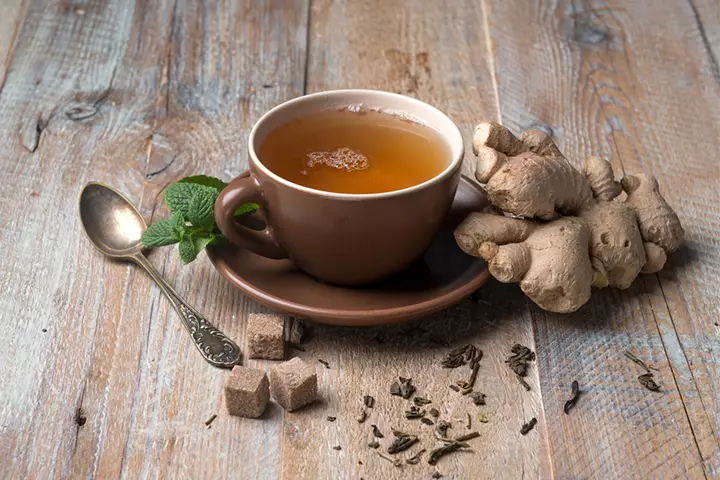
- Nettle tea: It is a nutrient-rich tea containing high levels of vitamins A, C, K and minerals including iron, calcium, potassium, and magnesium (5). It is best to have it in the second and third trimesters as nettle tea may cause uterine contractions, which could harm the vulnerable fetus in the first trimester.
- Raspberry leaf tea: It is rich in iron, calcium, and magnesium and is safe to consume from the second trimester. The rich mineral content of this herb tones the uterine muscles in preparation for labor, and also prevents postpartum hemorrhageiHeavy blood discharge from blood vessels after childbirth. (6). However, women with gestational diabetes should take this tea with caution and after thoroughly consulting with the doctor.
 Did you know?
Did you know?- Dandelion leaf tea: It is high in iron, calcium, and potassium. It has a diureticiA substance that enables the kidneys to produce more urine and get rid of the excess fluid from the body. effect and eases fluid retention in late pregnancy (7).
- Spearmint and Peppermint teas: They alleviate nausea, vomiting and also treat digestive issues by effectively relaxing the stomach muscles. These teas can be taken either alone or combined (8).
- Rooibos tea: It contains high levels of iron, zinc, magnesium, calcium, and antioxidants. It eases acid reflux, aids digestion, combats free radicals and detoxifies the body. It improves iron absorption, fights allergies and infections, and greatly improves immunity (9).
- Chamomile tea: It is a great source of calcium and magnesium, and thus eases joint inflammation. It is also useful in preventing insomnia and aiding labor contractions. You should avoid it if you are allergic to pollen and ragweed (8).
- Lemon balm tea: It effectively fights insomnia, irritability, and anxiety with its calming effects, thus promoting relaxation (10).
You can combine any of these herbal teas with ingredients such as honey, cinnamon, citrus rinds, and cloves for added flavor.
Benefits Of Consuming Safe Teas During Pregnancy
Each tea has its set of properties, and you can select the best tea depending upon your requirement and mood. Most of the teas help alleviate common pregnancy issues and also serve as the best alternative to caffeinated drinks such as coffee. Herbal tea:
- Fights morning sickness and diarrhea

The right cup of tea can elevate your mood and also energize you. So what and how you choose can make a huge difference in the tea-drinking experience.
How To Choose A Safe Tea To Drink?
You may choose herbal teas over non-herbal teas as they are safe and beneficial. In any case, read the ingredient list before buying some tea. You can also talk to your health care provider to learn about the best teas you can have at this time for optimum prenatal care.
- Begin with a small amount of tea, and notice your body’s response. If you feel alright without any adverse effects, you can slowly add more quantities to your everyday regimen.
- Do not consume tea regularly if you are not aware of the ingredients. Also, avoid tea made of unfamiliar ingredients.
But even a healthy cup of tea could be bad when consumed in excess. Find out next, the ideal quantity of tea you can safely consume during pregnancy.
How Many Cups Of Tea Are Safe During Pregnancy?
You should limit your caffeine consumption to 200 milligrams a day during pregnancy as excessive tea consumption during pregnancy may lead to birth defects in the developing fetus besides causing other complications. As said above, a single cup of tea contains around 40 to 50 milligrams; you can take up to three to four cups of tea daily without worries (11).
What Teas Should You Avoid During Pregnancy?
Although it is fine to drink tea during pregnancy, some teas, such as black and green tea, contain high caffeine levels and should be restricted during pregnancy. It is for the safety of maternal health (12). Additionally, certain herbal teas may cause contractions and raise the risk of preterm labor.
- Black teas such as Earl Grey, English Breakfast, Ceylon
- Green or matcha teas
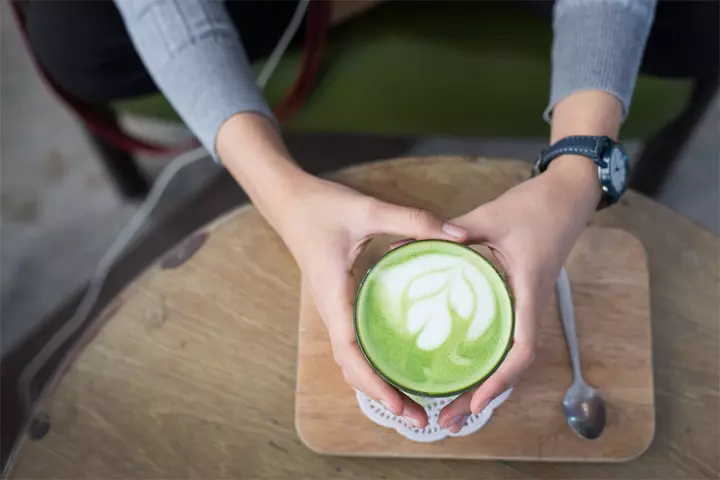
Some teas that are to be avoided due to their risk of side effects (such as miscarriage, high blood pressure, laxative properties, etc.) are as follows (13):
- St. John’s Wort
- Ginseng
- Dong Quai
- Pennyroyal
- Yarrow
- Licorice root
- Ephedra
Not all teas are known to be safe or unsafe. Here is a list of teas which haven’t been studied enough to understand their effect on pregnancy, and are best avoided for your well being.
- Lime blossom
- Rosehip
- Comfrey
- Catnips
- Anise
- Yellow dock
- Alfalfa
Consume these teas, in minimal amounts, only on approval of your doctor.
- Sage tea
- Hibiscus
- Rosemary
- Mistletoe
Too long a list to remember? Keep in mind only the list of safe teas and enjoy them while you are pregnant. You can drink decaf tea during pregnancy instead of the stronger teas so that most of the caffeine is removed.
To decaffeinate tea, steep the leaves or bag for about 30 seconds, remove the water and again fill the cup with hot water. Repeat it one more time. You will get decaf tea.
Possible Side Effects Of Drinking Unsafe Teas
Moderate consumption of caffeinated tea is not known to cause adverse effects on fetal health. But, if caffeine consumption exceeds 200mg in a day, it is likely to affect the fetal development and growth. You may have a miscarriage, or give birth to babies with intrauterine growth restrictionsiPoor growth of the baby in the uterus due to lifestyle practices or specific health conditions. (IUGR). Excessive caffeine is known to cause vasoconstrictioniNatural or artificially induced constriction of blood vessels. of blood vessels and interfere with cell division that causes these ill effects (14). Also, on consumption of any tea, if you are feeling nauseous, experiencing cramps, or any allergic reactions, such as rashes or breathing problems, seek medical care immediately.
Next, we answer some common queries about tea during pregnancy for your better understanding.
Frequently Asked Questions
1. Can I take milk tea during pregnancy?
You can take milk tea but limit your consumption to one cup a day.
2. Can tea cause a miscarriage?
Excessive consumption of tea results in excessive caffeine intake, which could increase the risk of miscarriage (15).
3. Is chai tea safe to drink while pregnant?
Chai tea or masala chai is the Indian version of tea that is a combination of black tea seasoned with herbs such as ginger, cardamom, black pepper, cinnamon, nutmeg, almond, rose or licorice, all of which give it a spicy flavor. It is safe to take this in moderation as the different spices might have varied effects during pregnancy.
4. Can I have cinnamon tea during pregnancy?
Cinnamon tea is okay to consume as long as you consider taking in very minimal amounts. It contains essential oils that may induce uterine contractions and thus be harmful to the fetus (16).
5. Is green tea safe during pregnancy?
It is safe to consume green tea in pregnancy when you take in minimal quantities. It also contains caffeine and can reduce folateiThe vitamin B9 complex that is responsible for the formation of red blood cells and healthy cell growth. levels in the body (17) (18). It is better to consider taking it from the second trimester.
Drinking tea during pregnancy helps you deal with the signs of morning sickness and improve your cardiac health. However, it is advised to drink herbal tea instead of regular tea during pregnancy as the caffeine amount is negligible compared to regular tea and is also beneficial for the body. However, there are certain herbal teas that you should avoid, as they might lead to complications in the pregnancy or miscarriage. Therefore, consult with your obstetrician or midwife before drinking herbal tea while pregnant and ensure that the ingredients are safe.
Infographic: Choosing The Right Teas In Pregnancy
A cup of tea is refreshing on any day, especially to soothe pregnancy-related discomfort. Keep this infographic handy to cross-check the safe and unsafe teas during pregnancy and the benefits of this beverage.

Illustration: Momjunction Design Team
Illustration: Drinking Tea During Pregnancy: What Are Safe & What Are Not

Image: Dalle E/MomJunction Design Team
If you’re pregnant and wondering if you can continue drinking your favorite tea and if yes, how much should you drink? Watch this video to find out!
Personal Experience: Source
MomJunction articles include first-hand experiences to provide you with better insights through real-life narratives. Here are the sources of personal accounts referenced in this article.
i. My 1st trimester must-haves;https://elaine73.blogspot.com/2015/01/my-1st-trimester-must-haves.html
References
1. Tea; Oregon State University
2. Planning a Pregnancy; Cornell Health
3. Caffeine Chart; Center for Science in the Public Interest
4. Vegetarian Times Jun 1994; Page 87
5. B M Adhikari, A Bajracharya, A K Shrestha; Comparison of nutritional properties of Stinging nettle (Urtica dioica) flour with wheat and barley flours; Food Science & Nutrition (2016)
6. D C Neumann; Alternative Therapies for Perinatal Care: A Holistic Approach to Pregnancy; Grand Valley State University
7. Dr. Stacey Rosenberg; Natural Pregnancy, Natural Baby: Natural Remedies for Pregnancy, Birth and Post-Partum Discomforts; Page 50
8. Holly Roberts; Your Vegetarian Pregnancy: A Month-by-Month Guide to Health and Nutrition; Page 22
9. In-Sun Hong et al.; Anti-Oxidative Effects of Rooibos Tea (Aspalathus linearis) on Immobilization-Induced Oxidative Stress in Rat Brain; PLoS One; NCBI
10. Rosemary Gladstar; Herbal Healing for Women; Page 176
11. Fiona Wilcock; Super Easy Drinks, Soups, and Smoothies for a Healthy Pregnancy; Page 18
12. Samantha Feczko; The Non-Tea Drinker’s Guide to Tea; University of Washington
13. Catherine E. Burns et al.; Pediatric Primary Care – E-Book; Page 1211
14. Shannon E. Perry et al.; Maternal Child Nursing Care in Canada – E-Book; Page 277
15. Sven Cnattingius et al.; Caffeine Intake and the Risk of First-Trimester Spontaneous Abortion; The New England Journal of Medicine
16. Mansoor Ahmed et al.;Safety classification of herbal medicines used among pregnant women in Asian countries : a systematic review; BMC Complement Altern Med; NCBI
17. Frank Minirth et al.; The Christian’s Guide to Natural Products & Remedies: 1100 Herbs, Vitamins, Minerals, Supplements and More; Page 302
18. Ramesh C. Gupta; Nutraceuticals: Efficacy, Safety and Toxicity; Page 639
19. Herbal Tea and Pregnancy; American Pregnancy Association
Community Experiences
Join the conversation and become a part of our nurturing community! Share your stories, experiences, and insights to connect with fellow parents.
Read full bio of Dr. Shikha Sharma
- Theresa Saltsgaver has been a registered dietitian for 26 years, specializing in prenatal nutrition and dialysis. She founded Peak Nutrition for Life, which offers virtual 1:1 nutrition counseling. Theresa did her MS in Nutrition from Appalachian State University.
 Theresa Saltsgaver has been a registered dietitian for 26 years, specializing in prenatal nutrition and dialysis. She founded Peak Nutrition for Life, which offers virtual 1:1 nutrition counseling. Theresa did her MS in Nutrition from Appalachian State University.
Theresa Saltsgaver has been a registered dietitian for 26 years, specializing in prenatal nutrition and dialysis. She founded Peak Nutrition for Life, which offers virtual 1:1 nutrition counseling. Theresa did her MS in Nutrition from Appalachian State University.
Read full bio of Rebecca Malachi
Read full bio of Swati Patwal
Read full bio of Lorraine Teron







